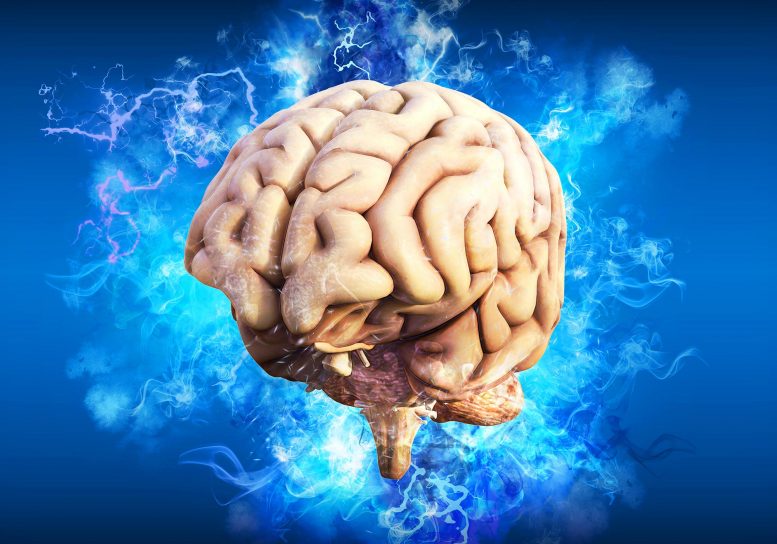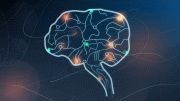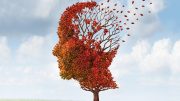
Think Declining Mental Sharpness “Just Comes With Age”? Think Again, Says a Prestigious NIH-Funded Conference
We’ve long thought cognitive decline was just “characteristic of aging,” but researchers convened by the American Geriatrics Society funding from the National Institutes of Health (NIH) suggest there’s nothing “just characteristic” of connections between age and cognition.
Declining mental sharpness “just comes with age,” right? Not so fast, say geriatrics researchers and clinicians gathered at a prestigious 2018 conference hosted by the American Geriatrics Society (AGS) with support from the National Institute on Aging (NIA). In a report published in the Journal of the American Geriatrics Society (JAGS), attendees of a conference for the NIA’s Grants for Early Medical/Surgical Specialists Transition into Aging Research (GEMSSTAR) program describe how increasing evidence shows age-related diseases—rather than age itself—may be the key cause of cognitive decline. And while old age remains a primary risk factor for cognitive impairment, researchers believe future research—and sustained funding—could illuminate more complex, nuanced connections between cognitive health, overall health, and how we approach age.
“We’ve long been taught that cognitive issues are ‘just part of aging,’” explains Christopher R. Carpenter, MD, MSc, who helped coordinate the conference. “But contemporary medical research shows how bodily changes that lead to diseases like dementia appear long before the symptoms we associate with ‘old age.’ This begs the question: Is it really age that causes cognitive decline, or is it ultimately the diseases we now associate with age—in large part because we see them with increasing frequency now that we live longer? That’s what we wanted to tackle coming together for this meeting.”
Hosted by the AGS and NIA in 2018 as the third conference in a three-part series for GEMSSTAR scholars, the NIA “U13” conference brought together NIA experts and more than 100 scholars, researchers, and leaders representing 13 medical specialties to explore experiences with cognitive impairment across health care. Conference findings, published in JAGS (DOI: 10.1111/jgs.16093), detail early thinking on the two-way relationship between cognitive health and the health of other organ systems, as well as opportunities for moving science and practice forward.
According to attendees, several themes emerged:
- Researchers and clinicians from across health care noted the critical relationship between two of their top concerns: Dementia and delirium (the medical term for abrupt, rapid-onset confusion or an altered mental state, which affects millions of older adults annually). Research now suggests delirium and dementia are mutually inclusive risk factors, with cases of one prompting risks for the other. Thus, prevention of delirium may offer the unprecedented opportunity to prevent or lessen future cognitive decline.
- Still, as one of the conference attendees noted, “[T]he brain is not an island.” Because the conference focused on the impact of cognitive impairment across specialties, a critical focal point for scholars was the complex, bi-directional relationship between cognition and the rest of the body. Cognitive impairments can serve as indicators or influencers in the course of other diseases and conditions. For example, cognitive impairment is perhaps “the strongest independent predictor” of hospital readmission and mortality for older people living with heart failure.
- As the field progresses, however, a major barrier remains: A dearth of research owing to the exclusion of potential study participants who are cognitively impaired. Though obtaining informed consent (the term used to describe a person’s willingness to participate in a study after confirming they understand all the possible risks and benefits) remains challenging, researchers pointed to data that willingness to participate remains high. Coupled with suggestions for tailoring consent safeguards to the types of studies and potential participants thus holds promise for protecting against exploitation while continuing to move cutting-edge care principles forward.
As the GEMSSTAR conference attendees concluded, “The aging of the U.S. population and the growing burden of dementia make this an area of critical research focus…[U]nderstanding and addressing cognitive health and its relationship with the health of other organ systems will require multidisciplinary team science…[and new] study designs…”
The NIA’s GEMSSTAR program awards support to early-career physicians trained in medical and surgical sub-specialties to conduct transdisciplinary aging research. The AGS serves as a central coordinating body for applicants in particular specialties interested in applying for professional development support, and connects these awardees with their specialty societies. Additional funds support a Professional Development Plan to complement research projects.
Reference: “Impact of Cognitive Impairment Across Specialties: Summary of a Report From the U13 Conference Series” by Christopher R. Carpenter MD, MSc; Frances McFarland PhD, MA; Michael Avidan MBBCh, MD; Miles Berger MD; Sharon K. Inouye MD, MPH; Jason Karlawish MD; Frank R. Lin MD; Edward Marcantonio MD, SM; John C. Morris MD; David B. Reuben MD; Raj C. Shah MD; Heather E. Whitson MD, MHS; Sanjay Asthana MD; and Joe Verghese MBBS, MS, 22 August 2019, Journal of the American Geriatrics Society.
DOI: 10.1111/jgs.16093
Abstract
Funding for this conference was provided in part by the National Institutes of Health (NIH, Award Number U13AG048721). The information and views expressed in conference materials and this release are solely the responsibility of the authors and do not necessarily represent the official views of the NIA and/or the NIH.
Although declines in cognitive capacity are assumed to be a characteristic of aging, increasing evidence shows that it is age‐related disease, rather than age itself, that causes cognitive impairment. Even so, older age is a primary risk factor for cognitive decline, and with individuals living longer as a result of medical advances, cognitive impairment and dementia are increasing in prevalence. On March 26 to 27, 2018, the American Geriatrics Society convened a conference in Bethesda, MD, to explore cognitive impairment across the subspecialties. Bringing together representatives from several subspecialties, this was the third of three conferences, supported by a U13 grant from the National Institute on Aging, to aid recipients of Grants for Early Medical/Surgical Specialists’ Transition to Aging Research (GEMSSTAR) in integrating geriatrics into their subspecialties. Scientific sessions focused on the impact of cognitive impairment, sensory contributors, comorbidities, links between delirium and dementia, and issues of informed consent in cognitively impaired populations. Discussions highlighted the complexity not only of cognitive health itself, but also of the bidirectional relationship between cognitive health and the health of other organ systems. Thus, conference participants noted the importance of multidisciplinary team science in future aging research. This article summarizes the full conference report, “The Impact of Cognitive Impairment Across Specialties,” and notes areas where GEMSSTAR scholars can contribute to progress as they embark on their careers in aging research.









MY husband and I are 91 years old. Although we are independent, and living together in the same house for over 60 years,we both seem to be less acute these past five years. As a retired professional social worker who spent my career working with elderly, and am currently a volunteer Ombudsman for Long Term Care residents, I see the last years of so many wonderful folks end so tragically in both nursing homes and assisted living facilities. The lack of purpose and stimulation as well as identity results in mental decline as much as anything. Please focus on better endings for seniors.